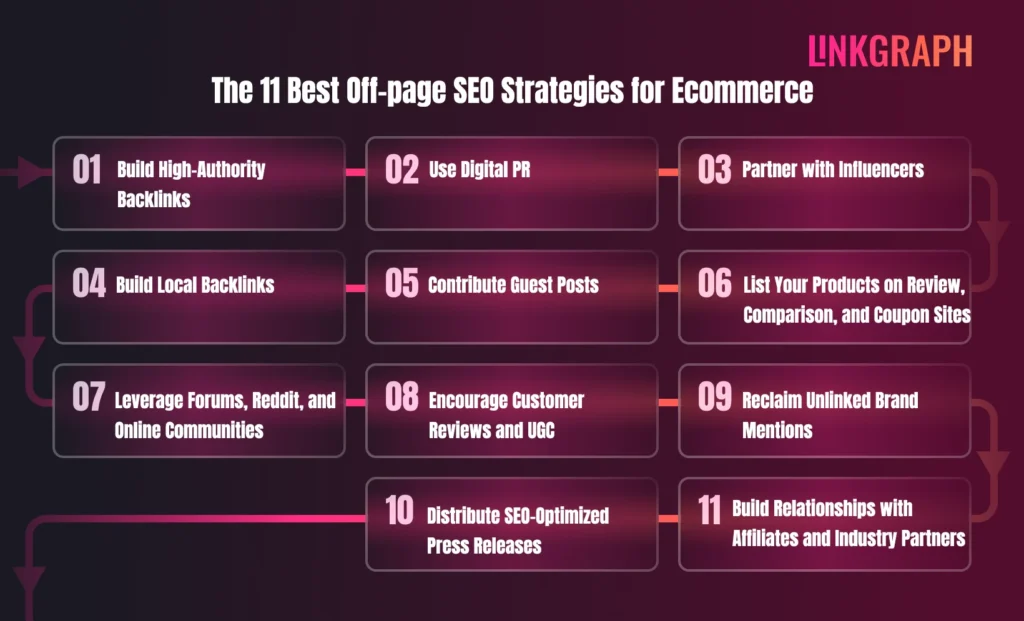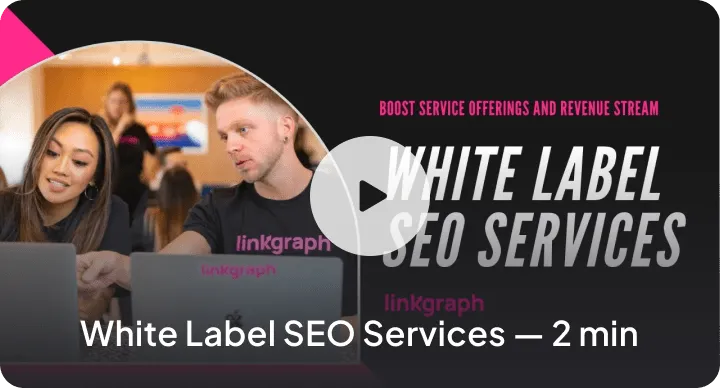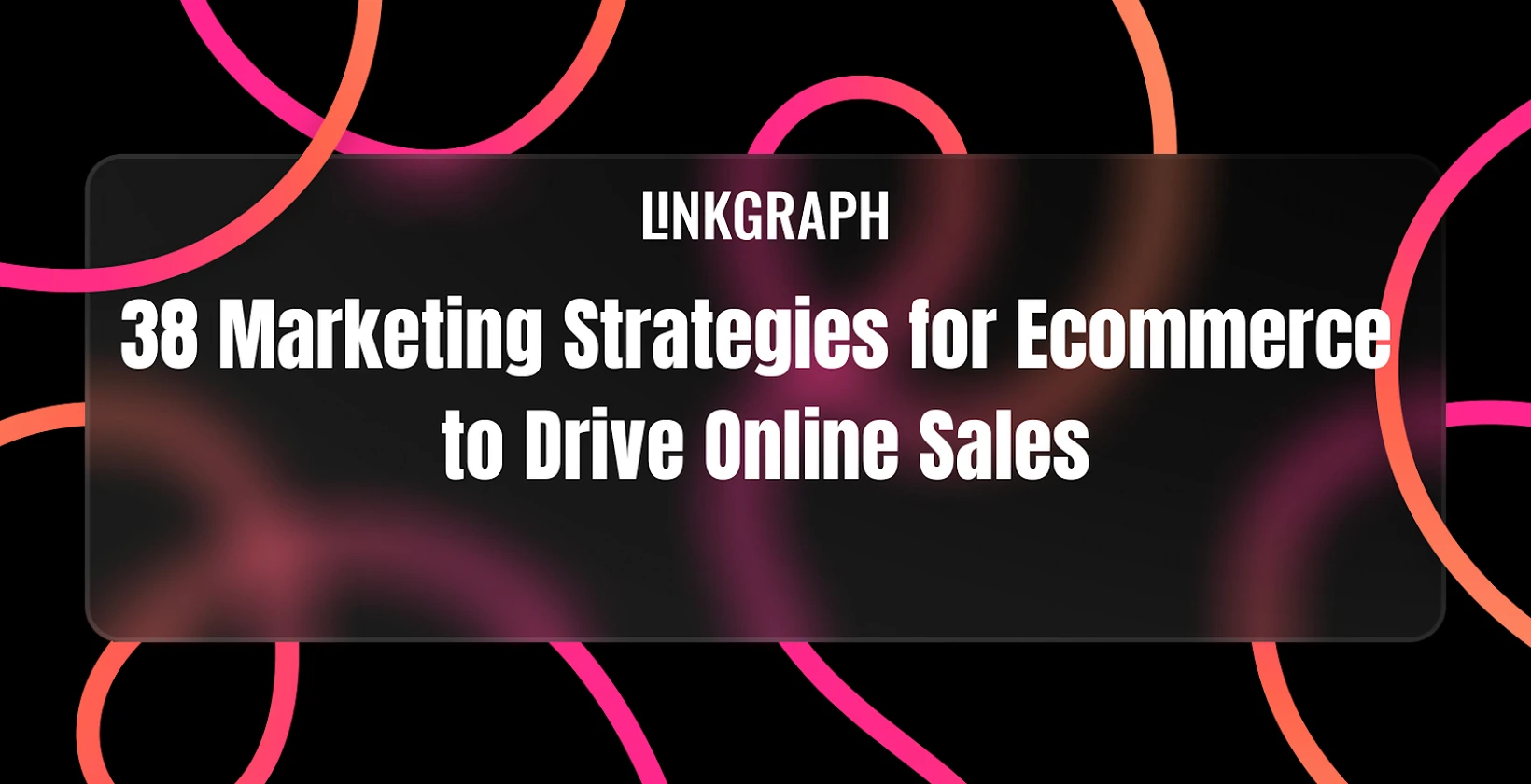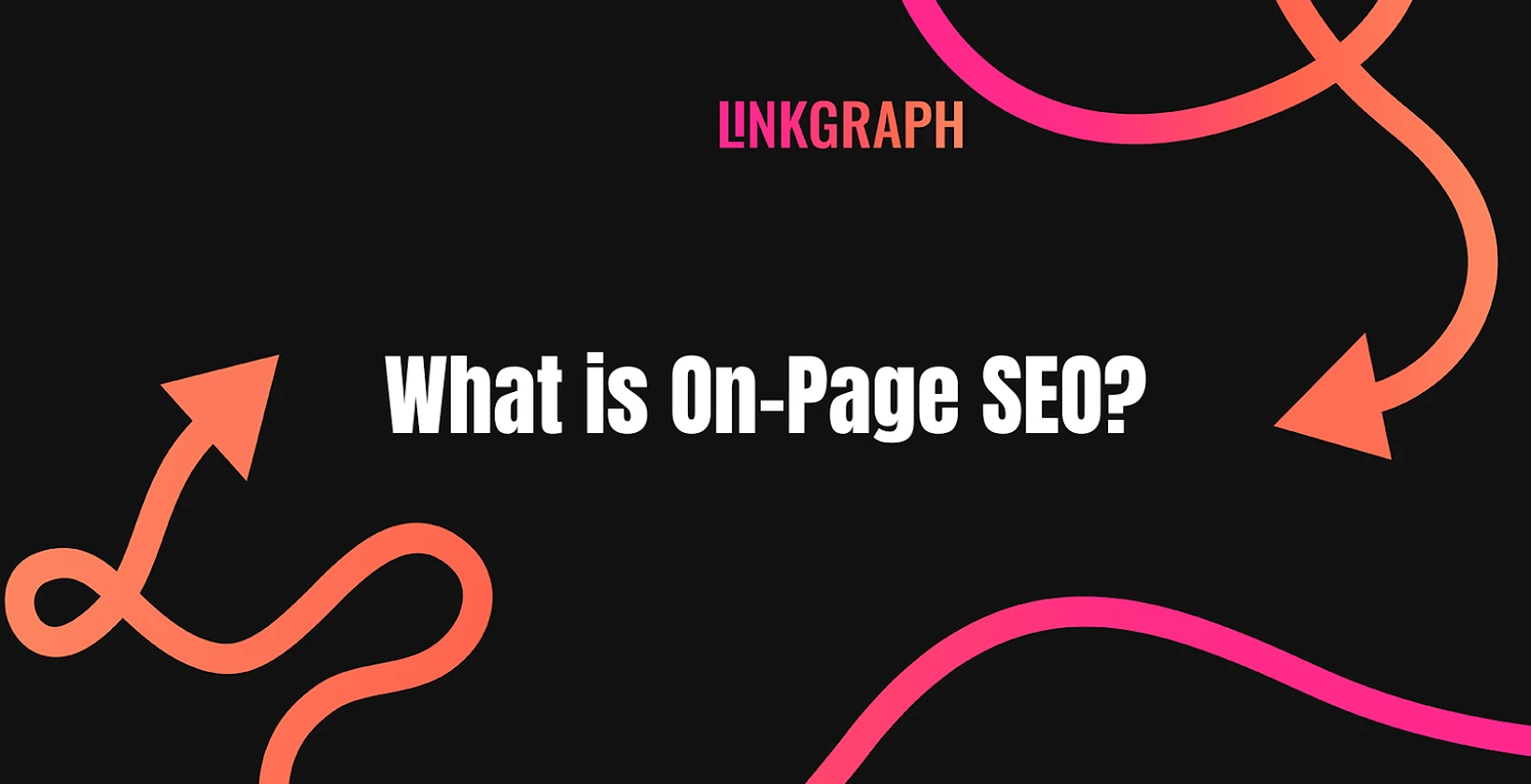Off-Page SEO for Ecommerce: Top 11 Strategies to Rank Higher
Off-page SEO for ecommerce increases search visibility by building authority through links, mentions, and trusted external signals. Off-page SEO connects ecommerce websites with the broader internet, helping […]
Off-page SEO for ecommerce increases search visibility by building authority through links, mentions, and trusted external signals. Off-page SEO connects ecommerce websites with the broader internet, helping search engines evaluate credibility and relevance. In crowded markets, off-page SEO gives brands the edge needed to earn higher rankings and attract ready-to-buy customers.
This article explores the real value of off-page SEO for ecommerce. It covers 11 Off-page SEO strategies for ecommerce that build backlinks, generate social proof, and grow visibility through media coverage, influencer features, community engagement, and affiliate connections. These Off-page SEO tactics for ecommerce focus on creating lasting brand authority across digital platforms that matter.
Clear, practical guidance shows how ecommerce websites apply each strategy. From outreach to placement, every step supports long-term growth without relying on paid ads or algorithm shifts. By the end, readers will see how off-page SEO powers steady traffic, stronger rankings, and brand trust that continues to grow.
What is Off-page SEO for Ecommerce?
Off-page SEO for ecommerce refers to the process of improving website authority and relevance through actions taken outside the site itself. Off-page SEO for ecommerce supports organic rankings by generating external signals like backlinks, brand mentions, and social engagement. Off-page SEO for ecommerce extends across link building, influencer marketing, online reviews, PR, forums, and social media.
The meaning of off-page SEO for ecommerce lies in building trust and credibility beyond the storefront. Off-page SEO for ecommerce focuses on gaining recognition from other websites and platforms that validate the value of the products or content. The strategy positions the store as a reputable source by earning links, mentions, and traffic from third-party domains.
The purpose of off-page SEO for ecommerce is to increase search visibility, drive referral traffic, and improve domain authority through external validation. Off-page SEO for ecommerce helps search engines interpret the site as trustworthy and authoritative, leading to higher rankings and better performance in competitive search results. As digital competition grows, off-page SEO remains a vital part of long-term ecommerce growth.
What is the Importance of Off-page SEO in Ecommerce?
Off-page SEO for ecommerce improves visibility in search results and supports long-term authority building. Off-page SEO boosts search engine rankings, increases trust signals, drives organic traffic, and offers a competitive advantage in crowded markets. Off-page SEO creates external signals that help ecommerce brands earn recognition beyond the website.
Off-page SEO for ecommerce increases rankings by sending relevance signals to search engines. Backlinks from trusted domains influence authority and improve position in organic results. Search engines reward ecommerce websites that earn quality links from relevant, authoritative sources.
Off-page SEO for ecommerce improves brand perception through association with reputable external platforms. Links from blogs, media sites, and directories validate ecommerce websites. Positive reviews, mentions, and influencer features help improve trust and drive engagement.
Off-page SEO for ecommerce brings referral traffic from external websites. Blog posts, social shares, press coverage, and partner features introduce products to new audiences. Visitors from these sources often explore with strong intent and interact longer with ecommerce websites.
Off-page SEO for ecommerce creates an advantage in competitive categories. Digital PR, backlink outreach, and strategic partnerships support stronger growth than on-site efforts alone. Off-page SEO helps ecommerce brands earn authority and increase their market presence.
Off-page SEO supports growth for ecommerce brands. Strong off-page signals improve visibility, attract qualified visitors, and help online stores perform better in search. Ecommerce websites benefit from continuous investment in off-page strategies that earn relevance and trust.

The 11 Best Off-page SEO Strategies for Ecommerce
Off-page SEO strategies for ecommerce focus on earning backlinks, brand mentions, and external validation from trusted sources. These strategies improve search rankings, attract referral traffic, and strengthen credibility across digital channels. Ecommerce websites use off-page SEO to gain authority, reach new audiences, and outperform competitors without modifying on-site content.
The list below covers the 11 most effective off-page SEO strategies for ecommerce growth.
- Build High-Authority Backlinks Through Content Marketing
- Use Digital PR to Earn Mentions and Features
- Partner with Influencers for Brand Mentions
- Build Local Backlinks Through Community Engagement and Sponsorships
- Contribute Guest Posts on Industry-Relevant Sites
- List Your Products on Review, Comparison, and Coupon Sites
- Leverage Forums, Reddit, and Online Communities
- Encourage Customer Reviews and UGC with Backlink Potential
- Reclaim Unlinked Brand Mentions
- Distribute SEO-Optimized Press Releases
- Build Relationships with Affiliates and Industry Partners
1. Build High-Authority Backlinks Through Content Marketing
Content marketing for off-page SEO involves publishing valuable resources that attract backlinks from relevant websites. Content marketing helps ecommerce websites earn authority by offering content others want to reference. This strategy works by aligning content with the interests of audiences and the goals of publishers looking to cite trustworthy sources.
Content marketing works as an off-page SEO strategy by creating linkable assets that other websites naturally mention and share. Blog posts, infographics, data studies, and guides often generate backlinks from blogs, media outlets, forums, and resource pages. These backlinks signal trust and relevance to search engines, improving rankings and driving referral traffic.
Ecommerce brands use content marketing to earn backlinks in the following ways:
- Publish blog content that answers common customer questions
- Create original data or industry statistics that others reference
- Design visual assets like charts, product explainers, or infographics
- Collaborate with influencers or thought leaders on expert roundup posts
- Promote content through email outreach or digital PR campaigns
- Offer valuable product guides or how-to resources that earn links from niche publishers
Content marketing supports off-page SEO by positioning ecommerce websites as authoritative sources. Backlinks earned through helpful, original content are more sustainable and trusted than paid links. This approach helps ecommerce brands attract qualified traffic and improve visibility through long-term organic growth.
2. Use Digital PR to Earn Mentions and Features
Digital PR is the process of gaining media coverage, online mentions, and backlinks through public relations outreach. Digital PR helps ecommerce websites earn trust and visibility by getting featured in news sites, blogs, magazines, and other authoritative platforms. This strategy focuses on positioning the brand as newsworthy or valuable to journalists, publishers, and content creators.
Digital PR works as an off-page SEO strategy by turning publicity into backlinks and brand signals. Mentions from credible websites improve domain authority and help search engines evaluate relevance and reputation. Digital PR also creates referral traffic from readers who discover the brand through articles, interviews, or feature stories. Unlike traditional PR, digital PR targets online publications that influence rankings and discovery.
Ecommerce websites earn digital PR features using these approaches:
- Pitch product launches, campaigns, or milestones to journalists
- Create expert commentary or data reports for media outlets
- Submit responses to journalist queries on platforms like HARO or SourceBottle
- Share unique insights or founder stories that interest niche publications
- Build relationships with editors and bloggers in relevant industries
- Distribute SEO-optimized press releases that include brand links
Digital PR is a trusted off-page SEO strategy for ecommerce businesses that want earned media exposure and natural backlinks. This service helps brands appear in the places customers already read and trust, increasing both search visibility and consumer confidence.
3. Partner with Influencers for Brand Mentions
Influencer partnerships involve collaborating with individuals who have loyal online audiences to promote ecommerce products or brand messages. These influencers share content that includes brand mentions, product features, and backlinks in blogs, videos, social posts, or newsletters. Influencer marketing helps ecommerce websites earn visibility and off-site signals that support off-page SEO.
Influencer partnerships work as an off-page SEO strategy by generating branded content across platforms the business does not control. Each mention or link from a trusted influencer serves as a form of endorsement that search engines recognize. These mentions drive referral traffic, increase brand awareness, and build authority through natural link acquisition.
Influencer-driven off-page SEO is done using the following methods:
- Identify influencers in your niche with high engagement and relevant audiences
- Offer free products or sponsor collaborations in exchange for content and backlinks
- Use influencer platforms or agencies to find reliable partners
- Ask for brand mentions in YouTube descriptions, blog articles, or social bios
- Ensure content includes SEO-friendly links and consistent brand messaging
- Track performance through referral traffic, link placement, and social reach
Partnering with influencers helps ecommerce brands build trust and expand reach beyond their website. This off-page SEO service brings long-term value through authentic content, social proof, and high-quality backlinks from real people with real audiences.
4. Build Local Backlinks Through Community Engagement and Sponsorships
Local backlink building involves earning links from websites connected to a specific geographic area. These include community blogs, event pages, nonprofit organizations, schools, directories, and local news outlets. Local backlinks help ecommerce websites strengthen regional authority and appear in location-based search results.
Local engagement works as an off-page SEO strategy by creating strong relevance between the ecommerce website and a geographic location. Search engines use local backlinks to verify credibility and presence within a target region. These links improve local keyword rankings and increase visibility among nearby customers who search for products or services.
Local backlink services for ecommerce websites typically include:
- Sponsoring local events, teams, or fundraisers with backlinks from event websites
- Donating to charities or nonprofits in exchange for mention on their websites
- Joining chambers of commerce or business associations that list members with links
- Contributing expert content to regional blogs or community resource pages
- Hosting contests or giveaways promoted by local media outlets or influencers
- Getting listed in city directories, “best of” lists, and local shopping guides
Building local backlinks helps ecommerce websites increase visibility in nearby markets and improve trust with both search engines and customers. These services are valuable for businesses offering regional shipping, targeting city-specific audiences, or running local campaigns.
5. Contribute Guest Posts on Industry-Relevant Sites
Guest posting is the process of writing and publishing content on third-party websites within the same industry or niche. This strategy helps ecommerce websites gain backlinks, increase exposure, and build authority in front of a targeted audience.
Guest posts work as an off-page SEO strategy by placing branded content and links on websites the business does not own. These backlinks send trust signals to search engines, improve domain authority, and drive qualified referral traffic. The process involves identifying reputable blogs or publications, pitching relevant article topics, and contributing high-quality content that includes a link back to the ecommerce website.
Guest posting services often handle outreach, content creation, and placement on approved sites, making this a reliable and scalable off-page SEO method for ecommerce brands seeking long-term visibility and credibility.
6. List Your Products on Review, Comparison, and Coupon Sites
Listing products on review, comparison, and coupon websites is a direct and underused off-page SEO strategy that builds authority and drives motivated traffic. These platforms often have strong domain authority and rank well for commercial keywords.
By securing placements on these sites, ecommerce businesses earn high-quality backlinks and gain visibility in search results they do not control otherwise. This strategy works by leveraging the trust and audience reach of third-party platforms that influence purchasing decisions.
It also improves referral traffic, as users visiting these sites typically have high intent to buy. Implementation involves submitting products to relevant directories, creating merchant profiles, and negotiating product inclusion with editors or site owners. Services that offer this type of outreach handle the entire process, from identifying target sites to ensuring backlinks are live and correctly attributed, making this one of the most practical link building tactics for ecommerce.
7. Leverage Forums, Reddit, and Online Communities”
Participating in forums, Reddit threads, and online communities is an off-page SEO strategy that builds trust and earns contextual backlinks. These platforms host active discussions where users ask questions, share experiences, and seek product recommendations.
Ecommerce websites use this strategy to engage in conversations by offering helpful insights and linking to relevant resources or product pages. This approach improves off-page SEO by creating natural link placements in content that users find valuable. Search engines recognize these links as part of real interactions, which helps boost authority and referral traffic. E
xecution involves identifying niche forums or subreddit communities, creating genuine user profiles, and contributing regularly without spamming. Services that specialize in this work focus on placing backlinks within meaningful comments or threads, ensuring both value for users and SEO benefit for the ecommerce website.
8. Encourage Customer Reviews and UGC with Backlink Potential
Encouraging customer reviews and user-generated content (UGC) is an off-page SEO strategy that increases brand mentions and earns backlinks from third-party platforms. Reviews on sites like Google, Trustpilot, Yelp, and niche directories help build trust, while UGC, such as blog posts, social media mentions, and video reviews, creates authentic signals that support SEO.
This strategy works by expanding brand presence across platforms outside the website, where customers actively share experiences and link back to the product or store. These backlinks contribute to domain authority, improve brand visibility, and drive referral traffic.
To implement this, ecommerce businesses ask customers to leave reviews on external sites, run campaigns encouraging social shares, or feature user-generated content that earns links. Services offering this support often include outreach templates, incentive programs, and reputation monitoring to help generate steady backlink opportunities through satisfied customer engagement.
9. Reclaim Unlinked Brand Mentions
Reclaiming unlinked brand mentions is the process of turning existing brand references on other websites into active backlinks. Many websites mention ecommerce brands in articles, reviews, or news without linking to the original store.
This strategy works as an off-page SEO method by converting those mentions into valuable links that pass authority and improve search rankings. Search engines treat these earned links as credibility signals, helping ecommerce websites gain visibility and attract referral traffic.
The process involves using tools to find mentions that do not include a hyperlink, then reaching out to site owners or editors with a polite request to add the link. Services that provide brand mention reclamation handle tracking, outreach, and follow-ups, making it a simple and effective way to gain backlinks from sources already familiar with the brand.
10. Distribute SEO-Optimized Press Releases
Distributing SEO-optimized press releases involves sharing news or announcements through media distribution networks that include backlinks to an ecommerce website. Press releases highlight product launches, partnerships, or milestones and are published on high-authority sites across news, business, and industry platforms.
This strategy works as an off-page SEO method by generating multiple backlinks from syndicated content, increasing visibility in search engines and driving referral traffic from media readers. Search engines treat these links as trust signals, especially when they appear on reputable publications. Execution involves writing keyword-optimized press releases, including relevant anchor text, and submitting them through trusted distribution services.
Providers offering this service manage writing, formatting, and placement to ensure the release meets editorial standards and delivers measurable SEO value for ecommerce businesses.
11. Build Relationships with Affiliates and Industry Partners
Building relationships with affiliates and industry partners is an off-page SEO strategy that earns consistent backlinks through strategic collaborations. Affiliates promote ecommerce products on their own websites, blogs, or social platforms and include referral links that drive traffic and build authority. Industry partners, such as suppliers, vendors, or complementary brands, often feature each other in resource pages, newsletters, or joint campaigns.
This strategy works by turning business relationships into link opportunities that improve rankings and expand brand presence across relevant sites. Implementation involves setting up affiliate programs, partnering with trusted websites, or co-creating content that includes backlinks.
Services offering affiliate and partner outreach help ecommerce brands find alignment with reputable sources, manage link placement, and ensure performance tracking, making this approach ideal for long-term off-page SEO growth.
Common Off-page SEO Mistakes Ecommerce Brands Make
Many ecommerce brands invest in off-page SEO but miss critical opportunities or apply tactics incorrectly. These mistakes weaken performance, reduce backlink quality, and limit visibility in search results. Identifying and avoiding these issues helps ecommerce websites get better results from their off-page efforts.
- Ignoring Link Building: Many ecommerce brands rely too heavily on product pages or hope that content will attract links organically. Without proactive outreach, partnerships, or backlink strategies, they miss essential opportunities to build authority and compete in search results.
- Neglecting Social Media: Social platforms are often dismissed as unrelated to SEO, but they play a key role in content visibility and brand exposure. Ignoring social media reduces the chance of earning brand mentions, viral shares, and referral links from high-engagement communities.
- Not Optimizing for Local SEO: Ecommerce websites with regional audiences fail to build backlinks from local sources such as directories, blogs, or events. This mistake weakens geographic relevance and lowers brand presence in location-based search queries.
- Overlooking User-Generated Content: Customer reviews, social posts, and unboxing videos are powerful off-page assets. Brands that do not encourage or feature this content lose natural backlinks and social proof that influence search rankings and buyer trust.
- Spammy Link Building: Some ecommerce businesses use automated tools or pay for links from irrelevant sites, hoping for quick SEO wins. This approach often results in toxic backlinks that violate search engine guidelines and lead to ranking penalties.
- Using Too Much of One Type of Anchor Text: Repeating the same keyword-rich anchor text across multiple backlinks creates a pattern search engines flag as manipulative. Over-optimization damages link diversity and weakens the effectiveness of even legitimate backlinks.
Why Off-page SEO Is Essential for Long-term Ecommerce Growth?
Off-page SEO supports long-term ecommerce growth by building domain authority, increasing trust signals, and driving qualified traffic from sources outside the website. While on-page elements affect usability and content quality, off-page factors determine how search engines and users perceive the brand across the internet. A strong off-page strategy ensures ecommerce websites continue to earn visibility, even as algorithms evolve and competition increases.
As ecommerce expands, search engines rely more on external signals, like backlinks, mentions, and reviews, to evaluate which brands deserve top rankings. Off-page SEO creates a sustainable foundation for growth by diversifying traffic channels and reinforcing brand relevance beyond product pages.
Agencies like Linkgraph specialize in building comprehensive off-page SEO strategies tailored to ecommerce goals. Their services include high-quality link building, digital PR, content syndication, and backlink audits, all designed to improve authority and support ongoing performance in organic search. With access to proprietary technology and SEO expertise, Linkgraph helps ecommerce brands scale visibility and maintain search strength over time.







